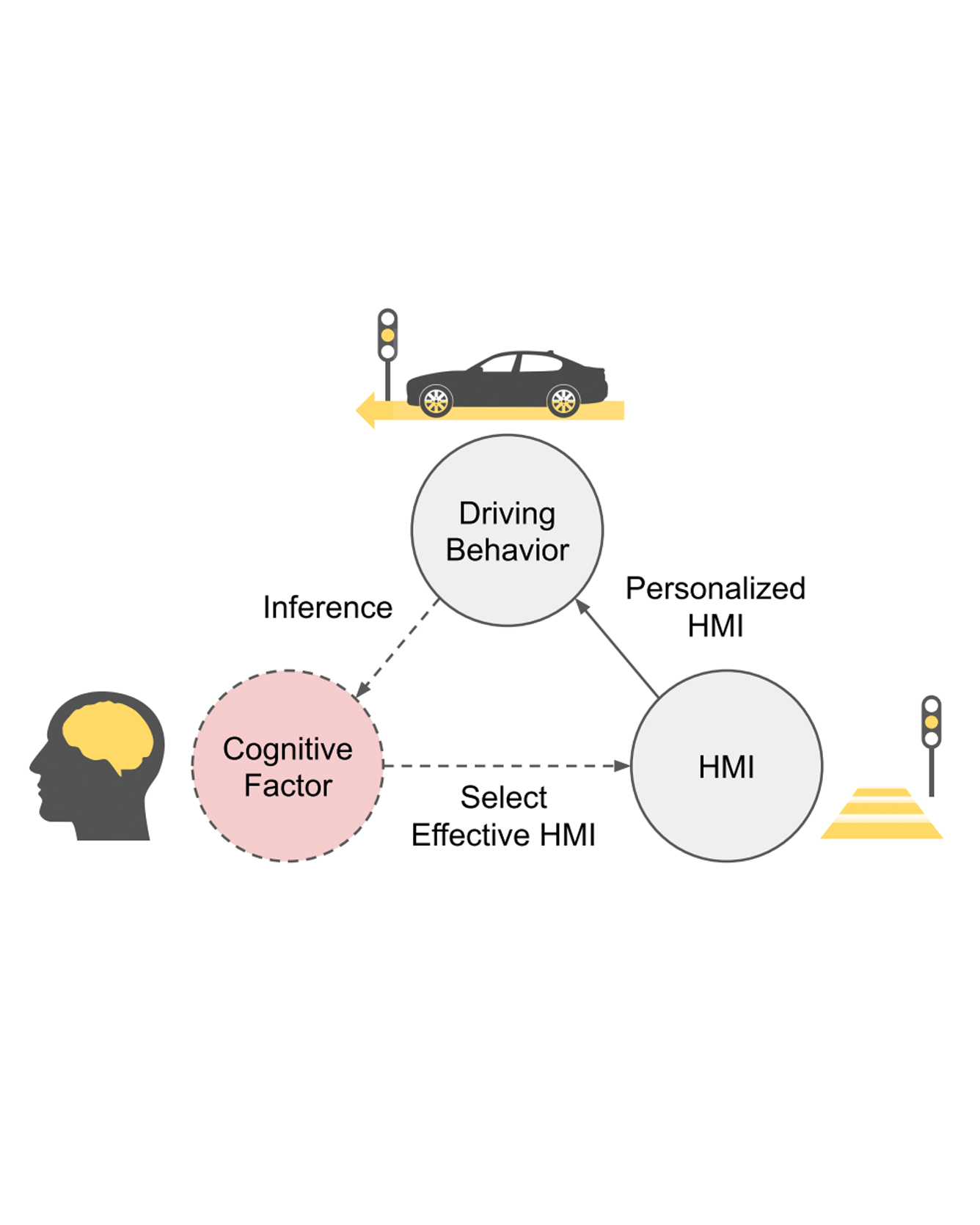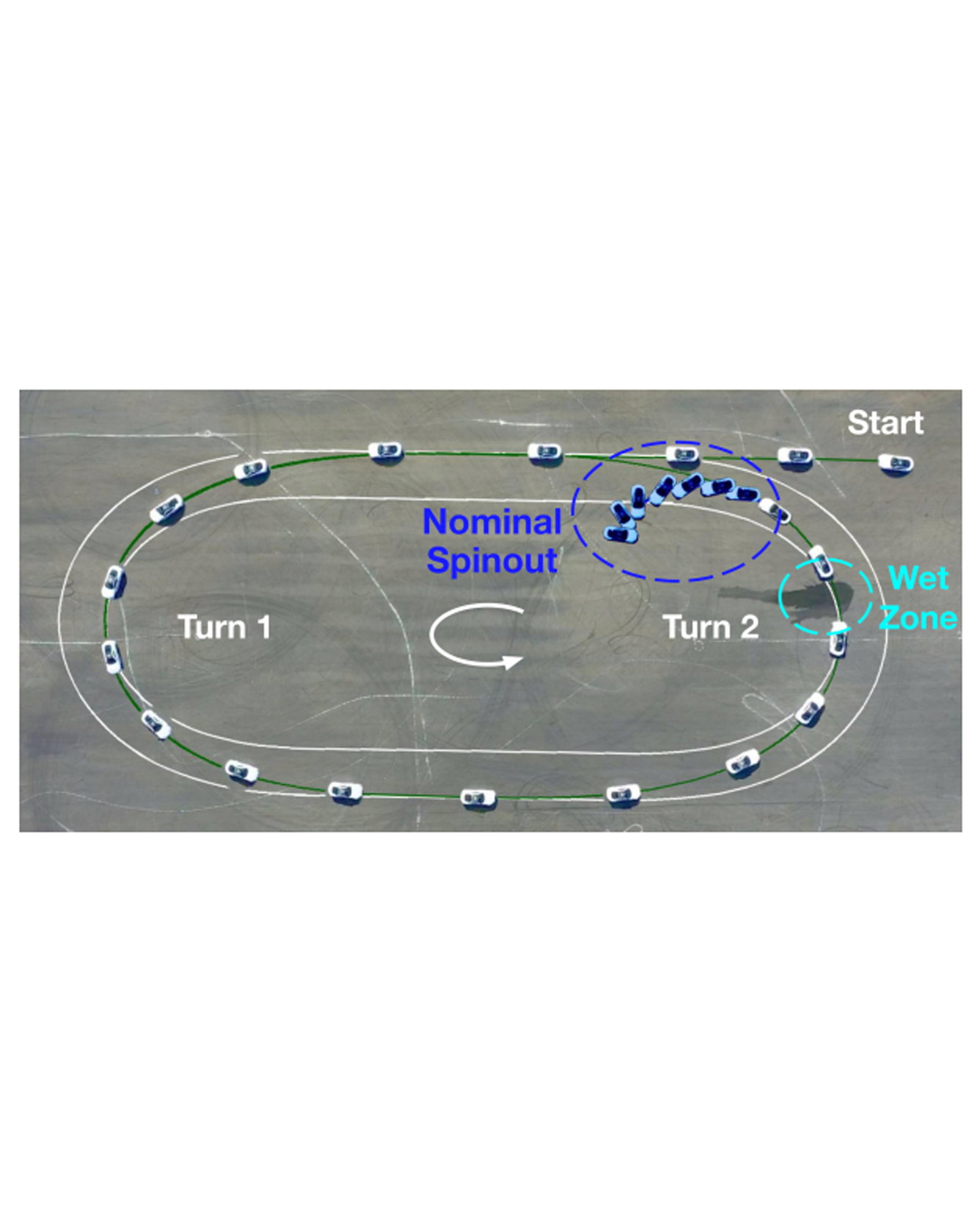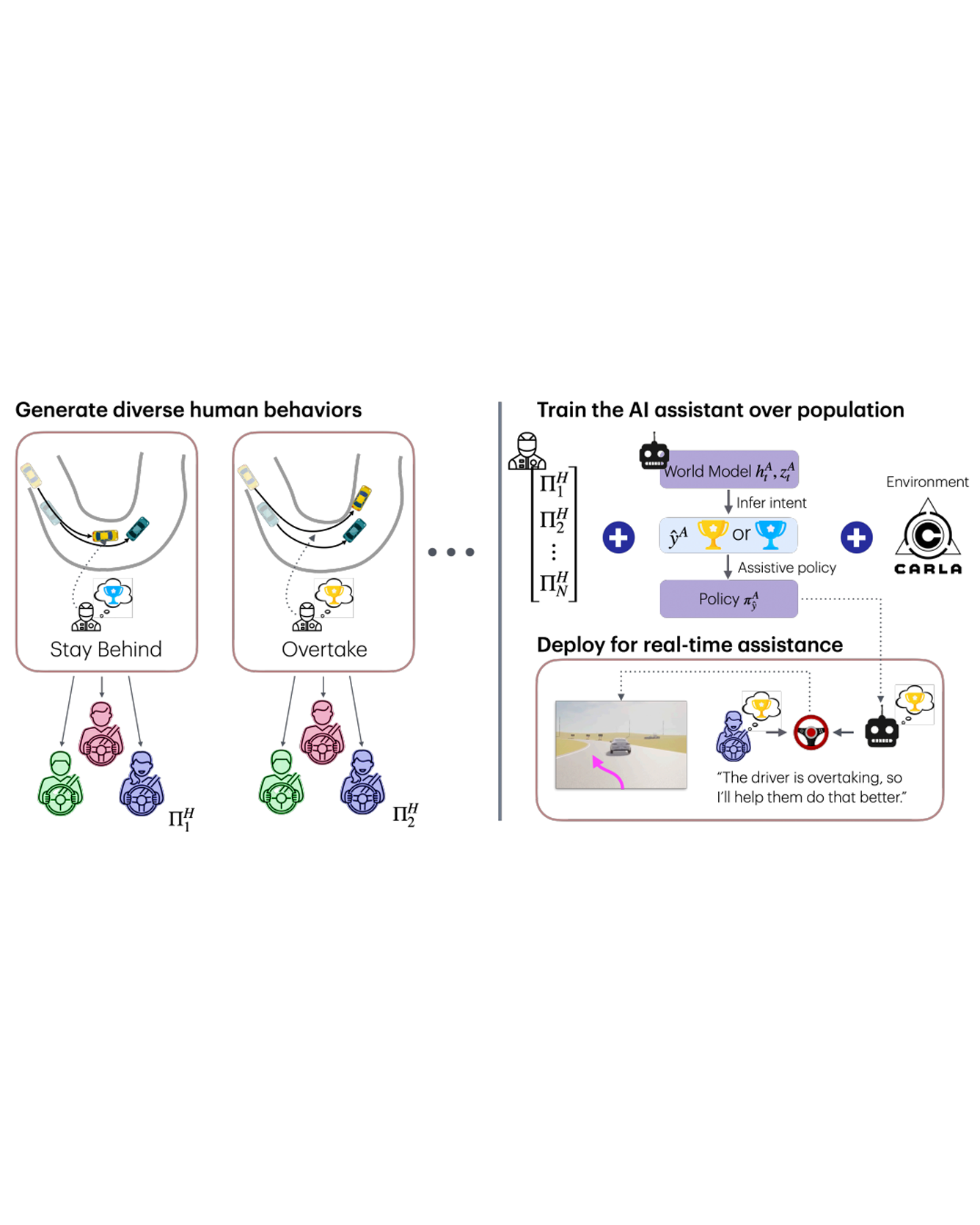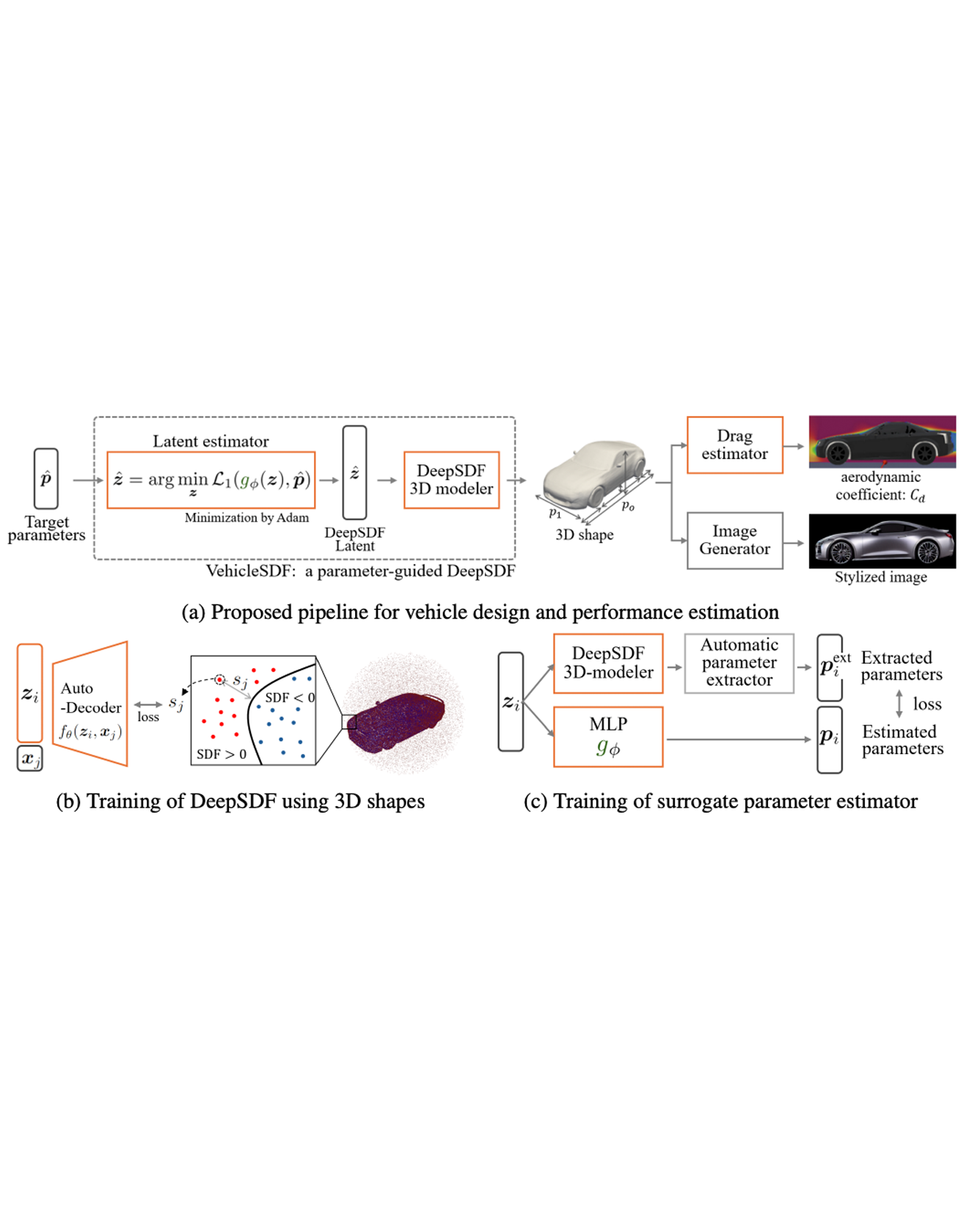
Recent advances in AI and intelligent vehicle technology hold promise to revolutionize mobility and transportation, in the form of advanced driving assistance (ADAS) interfaces. Although it is widely recognized that certain cognitive factors, such as impulsivity and inhibitory control, are related to risky driving behavior, play a significant role in on-road risk-taking, existing systems fail to leverage such factors. Varying levels of these cognitive factors could influence the effectiveness and acceptance of driver safety interfaces.
We demonstrate an approach for personalizing driver interaction via driver safety interfaces that are triggered based on a learned recurrent neural network. The network is trained from a population of human drivers to infer impulsivity and inhibitory control from recent driving behavior. Using a high-fidelity vehicle motion simulator, we demonstrate the ability to deduce these factors from driver behavior. We then use these inferred factors to make instantaneous determinations on whether or not to engage a driver safety interface. This interface aims to decrease a driver's speed during yellow lights and reduce their inclination to run through them. READ MORE


